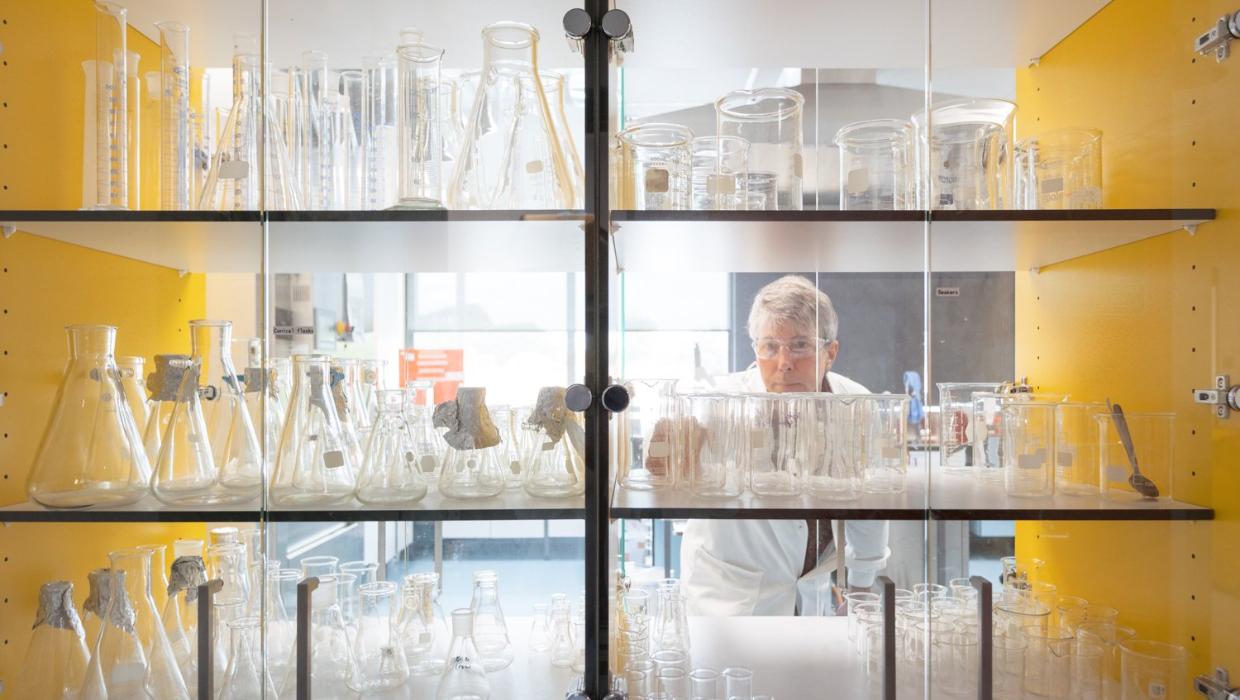Science
New Zealand’s Bioeconomy Science Institute Secures $20 Million Funding

The Bioeconomy Science Institute has received over $20 million in funding from New Zealand’s Endeavour Fund to support two innovative research programmes aimed at transforming the country’s food, biotechnology, and horticultural sectors. This significant financial boost reflects the government’s commitment to enhancing the resilience and competitiveness of New Zealand’s agricultural landscape.
Innovative Approaches to Horticulture
The first programme, titled Super-Storing: Extending the Life of NZ’s Perishable Fruits, has been awarded $10.2 million. Led by Associate Professor Robert Schaffer and Dr. Rosie Schröder, this initiative seeks to replicate the long storage life characteristic of kiwifruit in other highly perishable fruits, including summer fruits and berries. By employing advanced gene technologies, the research team aims to enable these crops to be stored and shipped by sea to distant markets, such as Asia and Europe, thereby enhancing New Zealand’s export potential.
New Zealand’s fresh fruit exports currently contribute approximately $3.5 billion annually, with kiwifruit and apples representing the majority of this figure. This research initiative is expected to diversify the horticultural sector and assist the government in its goal of increasing export value from $7 billion to $12 billion per year. The programme is projected to generate over $600 million in additional domestic economic activity, reduce food waste, and lower emissions by substituting air freight with more sustainable sea freight.
“This work will directly benefit growers, extend harvest windows, and build resilience against extreme weather,” Schaffer stated. “It’s about unlocking the full potential of New Zealand’s horticultural diversity.”
Transforming Waste into Valuable Resources
The second programme, Turning Pine Waste into Premium Proteins, is a five-year initiative with a funding allocation of $10.4 million. Led by Dr. David Hooks and Dr. Scott Knowles, this project will utilize Precision Fermentation to convert pine forestry residues into high-value proteins. This process aims to transform softwood residues, which have traditionally been discarded or burned, into valuable fermentation feedstocks using novel chemoenzymatic methods.
These feedstocks will subsequently be used to cultivate engineered yeast strains capable of producing specialty proteins that mimic the nutritional and functional benefits of animal-derived ingredients. This initiative supports New Zealand’s transition to a low-emission circular bioeconomy and addresses significant challenges related to feedstock availability, manufacturing scalability, and the regulatory landscape surrounding gene technologies.
“This is more than a research programme,” Dr. Hooks emphasized. “It’s a blueprint for how New Zealand can lead in the next generation of food and biotech innovation. This is about creating value from what we already have. New Zealand has abundant bioresources and world-class science. Precision Fermentation allows us to connect the two.”
Dr. Knowles added that converting forestry residues into feedstocks unlocks a new pathway for sustainable protein production, aligning with global efforts to establish climate-resilient food systems.
Researchers anticipate several innovations from this programme, including novel enzymes for converting lignocellulosic biomass into fermentable sugars, yeast engineering for high protein expression, and the development of single-cell protein as a co-product for animal feed.
The Bioeconomy Science Institute, formed by merging AgResearch, Manaaki Whenua – Landcare Research, Plant & Food Research, and Scion, is now the largest research organisation in New Zealand. The establishment of this institute follows governmental reviews that highlighted the need for structural changes to maximize the impact of scientific research on the country.
During a recent visit to the Lincoln campus, Hon Shane Reti, Minister of Science, Innovation and Technology, unveiled the institute’s new visual identity. “This is an exciting step in sharing our new organisation with the outside world,” said Mark Piper, Transition Chief Executive. “As we start our journey as Bioeconomy Science Institute, it’s great to be able to share this new visual identity which speaks to the organisation that we are building, for the benefit of Aotearoa New Zealand and the world.”
Minister Reti also announced an additional $6.5 million in industry funding aimed at developing methods to reduce methane emissions from grazing livestock. He witnessed the signing of a new licensing deal with Nelson-based Seaweave, which focuses on commercializing aquaculture monitoring technology.
-

 World3 months ago
World3 months agoTest Your Knowledge: Take the Herald’s Afternoon Quiz Today
-

 Sports3 months ago
Sports3 months agoPM Faces Backlash from Fans During Netball Trophy Ceremony
-

 Lifestyle3 months ago
Lifestyle3 months agoDunedin Designers Win Top Award at Hokonui Fashion Event
-

 Sports3 months ago
Sports3 months agoLiam Lawson Launches New Era for Racing Bulls with Strong Start
-

 Lifestyle3 months ago
Lifestyle3 months agoDisney Fan Reveals Dress Code Tips for Park Visitors
-

 Health3 months ago
Health3 months agoWalking Faster Offers Major Health Benefits for Older Adults
-

 World3 months ago
World3 months agoCoalition Forms to Preserve Māori Wards in Hawke’s Bay
-

 Politics3 months ago
Politics3 months agoScots Rally with Humor and Music to Protest Trump’s Visit
-

 Top Stories3 months ago
Top Stories3 months agoUK and India Finalize Trade Deal to Boost Economic Ties
-

 Entertainment3 months ago
Entertainment3 months agoExperience the Excitement of ‘Chief of War’ in Oʻahu
-

 World3 months ago
World3 months agoHuntly Begins Water Pipe Flushing to Resolve Brown Water Issue
-

 Science3 months ago
Science3 months agoNew Interactive Map Reveals Wairarapa Valley’s Geological Secrets









